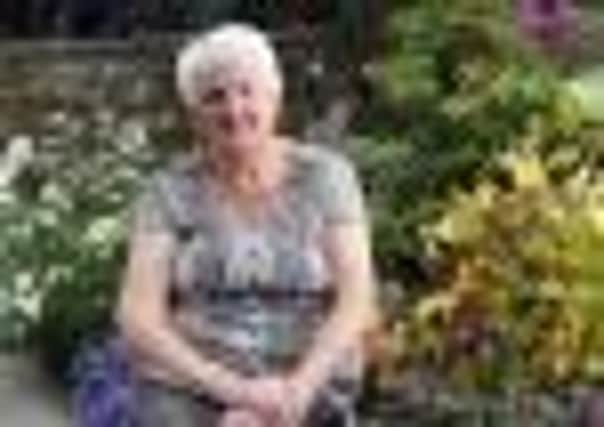Jean hopes young will be spared


JEAN Armitage’s family have been blighted by Paget’s Disease.
She can remember her grandfather suffering the bone disease, which also affected her mother and her aunts and uncles.
Advertisement
Hide AdAdvertisement
Hide AdShe now has the condition in her skull and her son has been diagnosed with it in his pelvis. Her daughters are carriers and are taking part in research into the disease.
“It is hereditary, but it seems that it is getting weaker with each generation,” says Jean, 74, from Huddersfield.
“My mother’s eldest sister was the worst affected. She had a very bad, bent leg and ended up in a wheelchair. We just hope that one day it will die out altogether.”
Paget’s disease of bone (PDB) is a chronic bone disease that is often painful and can have very disabling long-term complications such as bone deformity, fracture and even deafness. It was first described by Sir James Paget 125 years ago, but there are still a lot of unanswered questions about the management of it.
Advertisement
Hide AdAdvertisement
Hide AdThis country has the highest incidence of Paget’s disease in the world, with it occurring in more than three per cent of men and women over the age of 50.
“I find it amazing that so few people have heard of it,” says Jean, who keeps the condition under control by medication and hospital check-ups, although she does live in fear that it will flare up at any time.
Paget’s disease can affect either a single bone or can be found at several different sites, most commonly in the spine, thigh and pelvis.
In Paget’s disease, bone cells become over active and although this leads to the formation of bigger bones their structure becomes abnormal and weaker.
Advertisement
Hide AdAdvertisement
Hide AdIt can run in families and research has suggested that certain abnormal genes may be responsible for its development. It is also possible that exposure to certain viruses may help to trigger the condition.
There are those with Paget’s disease who have very few problems but others complain of nagging pain in the affected bone and if treatment is not given the bone can become deformed, it can break more easily and the enlarged bone can put more strain on joints leading to osteoarthritis.
The condition will show up on an X-ray and bone scan and a specific blood test may indicate over-activity of bone cells.
At present there is no complete cure but the good news is that medication can control the condition and hopefully prevent long-term complications.
Advertisement
Hide AdAdvertisement
Hide AdA group of drugs called bisphosphonates are used to treat the disease; these can be given as tablets or through an injection directly into the bloodstream.
Jean asked to be tested for Paget’s when her mother died but an x-ray failed to detect the condition. It wasn’t until the age of 59, when she had a blood test for another condition, that Jean’s Paget’s came to light.
Jean, who for years had post-menopausal hot flushes, now has other typical symptoms; she has difficulty with her spectacles fitting properly because of the slight deformity of her skull, she has some headaches and is going a little deaf. Her pelvis is also affected.
However, four infusions of the bone-building bisphosphonate drug pamidronate several years ago keep Jean’s condition largely under control.
Advertisement
Hide AdAdvertisement
Hide AdJean, who has 10 grandchildren and two great grandchildren, hopes that research will help treat the condition and eventually find a cure.
Charity to hold free meeting
Paget’s Disease is a common, chronic bone disorder that may be found by chance and often causes no problems
It occurs rarely in those under 50 but by the age of 80 about eight per cent of men and five per cent of women will be affected. Either single or multiple bones may be affected with the commonest sites arising in the spine, skull, pelvis, hip and shin.
Symptoms include pain, possible deformity and fracture. Drugs will control the disease.
Advertisement
Hide AdAdvertisement
Hide AdThe Paget’s Association is a charity which provides information and support, raises awareness and funds research into this condition, www.paget.org.uk or 0161 799 4646.
A free meeting is being held at Weetwood Hall, Otley Road, Far Headingly, Leeds on Friday September 9. Lunch will be provided. To confirm a place phone 0161 799 4646 or email: [email protected]